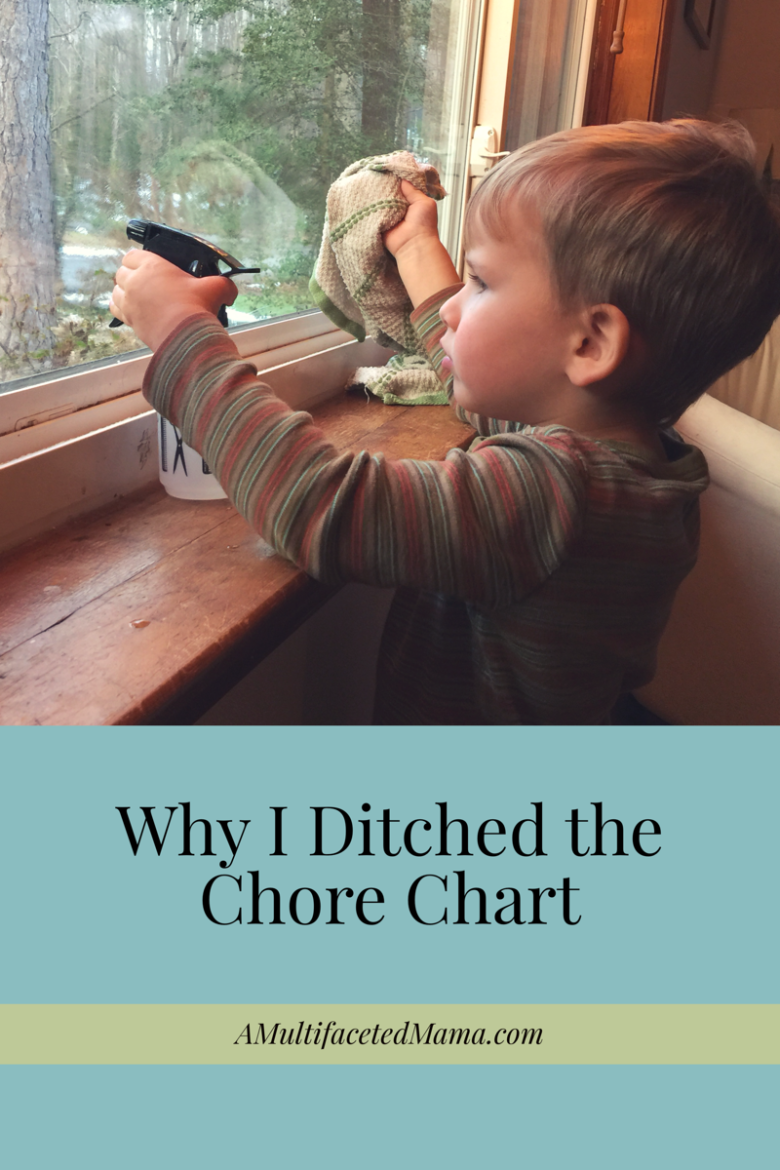 For the past couple of years there has been a chore chart on our refrigerator.
For the past couple of years there has been a chore chart on our refrigerator.
I had listed a daily set of chores that each child would be responsible for based on ability. Occasionally I’d get the kids to complete the items on the list, but mostly the chart sat on the fridge and collected dust. When I asked them to do their chores, there was a chorus of complaints; whining and bickering would grate my nerves and cause me to grumble about how lucky they are and how I don’t make them do anything, grumble, grumble, grumble, stomp, stomp.
But not too long ago, I ditched the chart all together and started a new approach.
What appealed to me about a chore chart was that it’s pretty easy. No questions really: each person has a chore, then they do it and check it off the list. I made it myself so each chore was appropriate for each age and nobody had more than two items a day.
My problem with it was 2 fold:
First, it was easy.
There was absolutely no thinking involved. The kids looked for their item on the chore list and nothing else, and completed their item regardless of whether or not it really needed to be done, or if something else needed more attention. The dishes could be piled high in the sink and on the counter, but if their job was to pick up the toys in the spotless living room, then that’s what they did and be off doing something else, with the dishes still in the sink.
Second, I took away the chance to do something too difficult.
Dividing chores up by age and ability stopped the kids from doing something that was a little too difficult for them. If there’s such a thing as dumbing down chores, that’s what I had done. Since then I learned that, with a little patience and practice, Marlowe at 3 can easily put his clothes on hangers and fold his own pants… but his previous chores had been wiping down tables or cabinets (a chore now most often handed to Langston… yes, the 18 month old).
So, we’ve switched up our morning chore routine to reflect what I want the kids to get out of chores rather than to just get things done.
Instead of telling the kids what to do each day, I now ask the kids to make observations themselves. Each day before we do our chores (for us this happens at our morning meeting before homeschool), I ask the boys to take a look around and see what might need to be done (I usually add one or two items that I’ve observed). Then we create our list of chores for the day and they divide them up amongst themselves.
While I realize I’m a parent, and work all the time, I also do chores at this time so they see me pitch in and know that I am available to help them when necessary.
Now we do chores with much more frequency than we used to (nearly every day) and there’s hardly any grumbling anymore from any of us. Occasionally, I’ll get a heavy sigh or a groan when they sign up for a certain job, but the requirement isn’t to not like chores, just to do them, so I ignore it.
I can’t say our house is much cleaner (by afternoon everything has exploded again), but in my mind, a cleaner home is only a benefit of what chores really are: a chance to learn how to work together for the good of the household.

Thank you for this insight. I call them family contributions in our home, but I also noticed if it’s not specifically on my 8 yr olds list, it was ignored. I will be implementing this idea immediately!
So glad you liked it! It’s working pretty well in our house😊